AUC alumna reflects on her return to Kosovo
10 October 2017
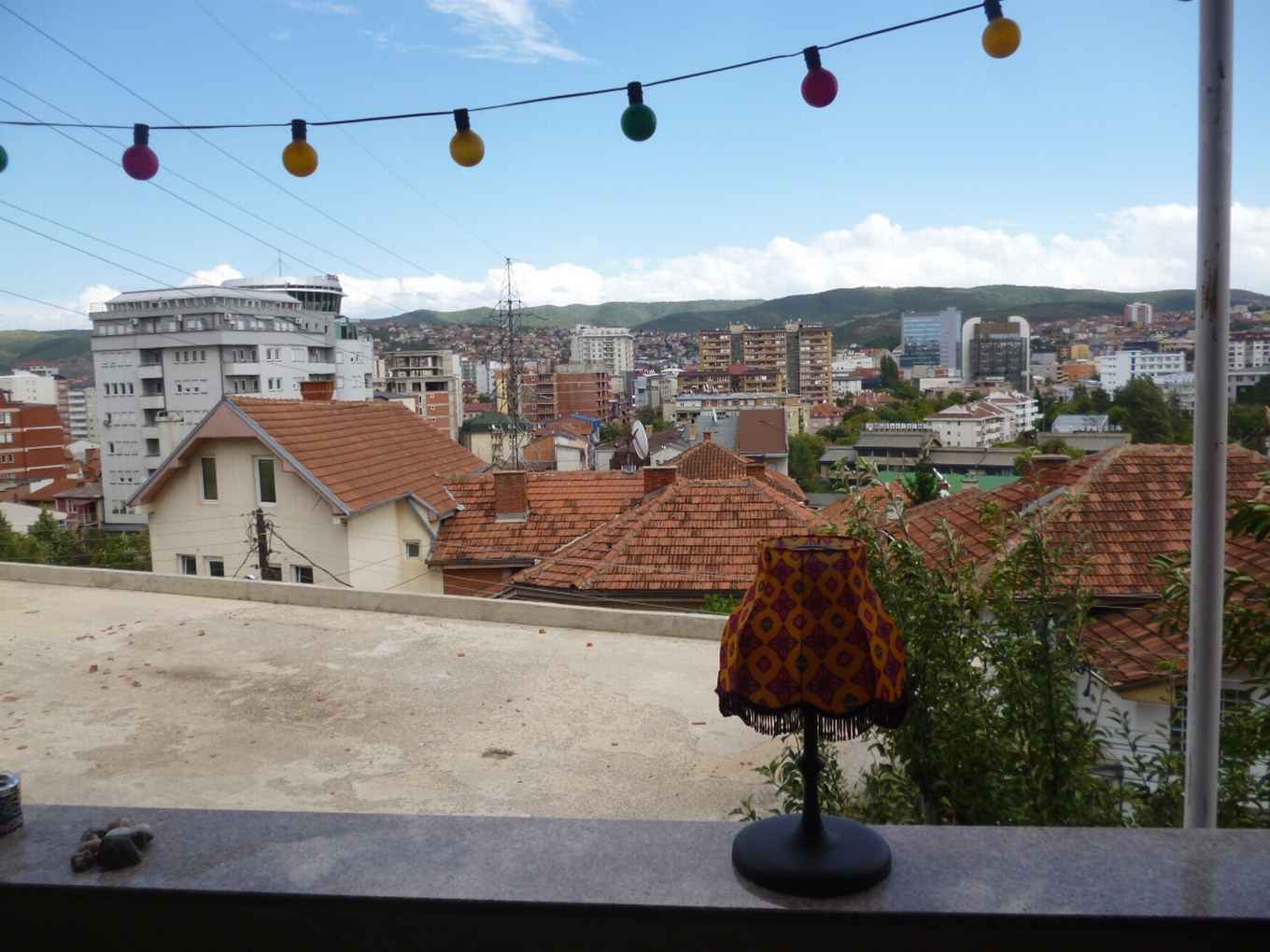
Kosovo is quite an uncommon place for an AUC Graduate to complete an internship. What motivated you to complete an internship there?
In June 2017, I took the course ‘Peace Lab’ at AUC. This course includes a ten-day field trip to Kosovo, during which students engage in experiential learning by interacting with the environment and the people. Besides all the issues and challenges that the young country faces, we also got to know many inspiring organisations and individuals. I believe that the time we spent in Kosovo really opened up new perspectives for me both personally and academically, and besides that, I also really felt at home in Pristina. The capital of Kosovo is such a vibrant, energetic and positive city full of amazing people, and so for me it was decided very soon that I would return to this place.
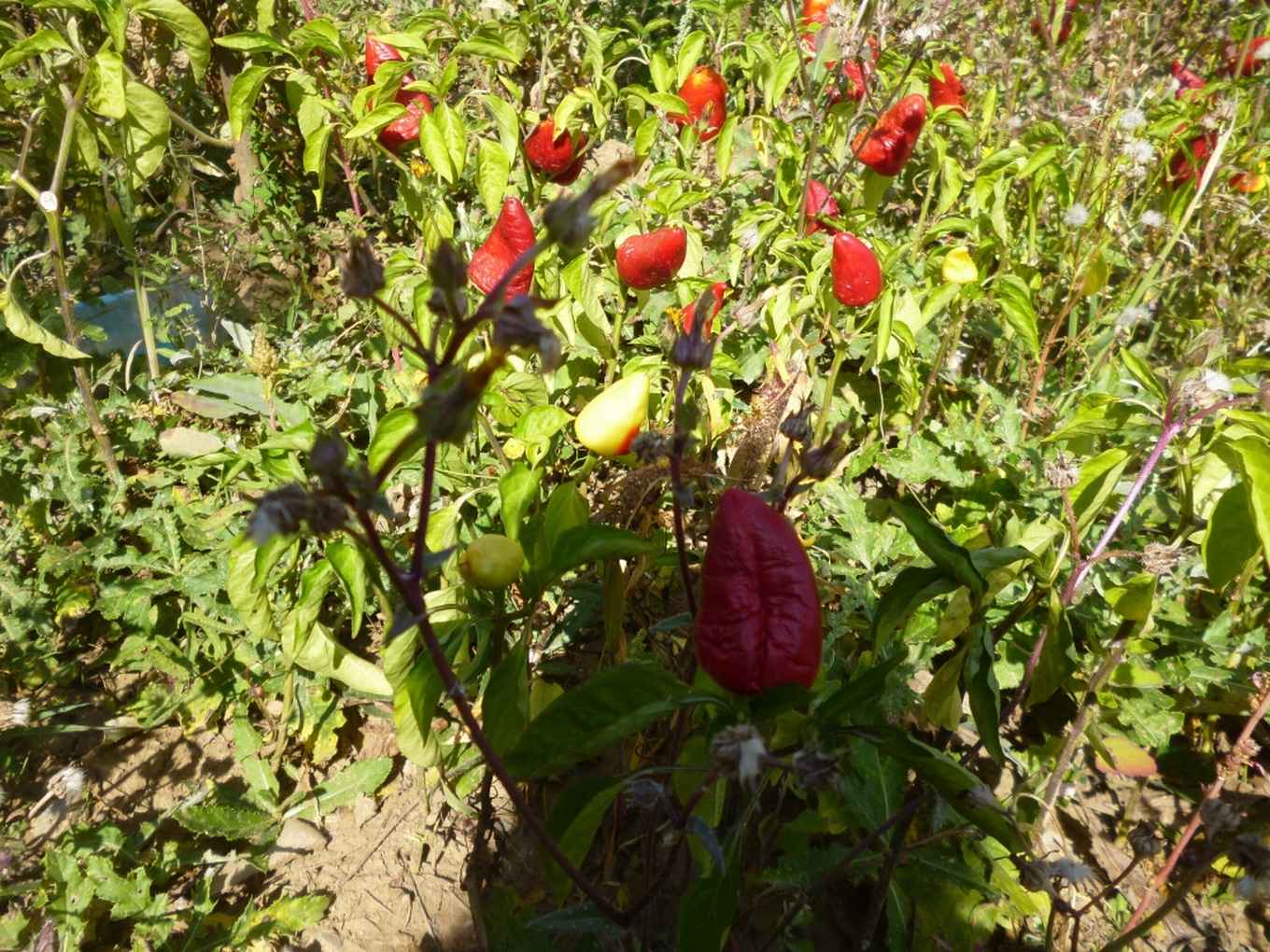
At which organisations do you currently have an internship?
I am currently doing an internship with the Kosovar Gender Studies Center (KGSC), and I am also volunteering with The Ideas Partnership (TIP). The KGSC is located in Pristina, and their work is aimed at integrating “gender-sensitive analyses, programs, and policies in all sectors of Kosovar society” (Mission statement, KGSC). Their approach is to create a more gender-sensitive and gender equal society – something that is unfortunately still lacking in Kosovo – through research, programme, and policy recommendation. They work in a mostly project-based manner, and continuously cooperate with various local and international organisations.
The Ideas Partnership – which is the NGO I am volunteering with – is working with Roma, Ashkali and Egyptian communities in two locations in Kosovo (Fushë Kosovë and Janjeva). The organisation is based on three pillars: health, education and integration. The aim of TIP is to increase information and access in these three areas, and in order to do so they target both children and adults of the concerned communities. Their activities include health mediation, a kindergarten, physiotherapy, extra school classes, a so-called ‘Girls Club’ which addresses issues of gender and equality, and many more. In my personal opinion, the most beautiful aspect of The Ideas Partnership is that, although the organisation was once founded by an English woman Elizabeth Gowing, the aim is to include the affected communities as much as possible in the coordination and organisation, and ultimately to ‘help people help themselves’.
There must be an abundance of NGO’s and other organisations in Kosovo that could be interesting to intern at. Why did you approach these two organisations in particular?
It is indeed true that there are countless different organisations within Kosovo, all of which do very interesting work. The reason why I approached these specific organisations is because I had been introduced to both of them during our field trip in June. Besides the fact that I already had an idea of their work and knew who to approach within the organisations, these NGO’s also left a lasting impression on me, and were one of the inspirations to return to Pristina in the first place.
In particular, the Gender Studies Center was a great help for our group project during the field trip in June. As we were trying to understand the role of women in Kosovar society and specifically peacebuilding, we had a meeting with the KGSC which was very valuable for our project, but also inspired me on a personal level. Furthermore, the visit to The Ideas Partnership in Fushë Kosovë was one of the most impressive and simultaneously one of the saddest moments during the trip. I remember very well how we went there on a rainy Saturday morning, walked around in the neighbourhood, stared into people’s houses, tried to participate in the English classes for an hour – and then just left. During the short time we spent at TIP, I was so amazed by the enthusiasm and positive spirit of the kids who had no idea why we were suddenly all standing in their classroom. Although I had a great time in the children’s English class, it felt very wrong that I had to leave their community after an hour, only to return to the safe and wealthy Amsterdam after a week. As our bus drove us out of Fushë Kosovë and in the direction of our next meeting, I promised myself that I would be back – and that is precisely what I did.

What exactly is your role within these organisations? What have you had to deal with?
Within the Kosovar Gender Studies Center, I mainly accompany and assist with ongoing projects. When I had just arrived in Pristina, I was able to support the preparation of a leadership training for young women within the framework of the EU-funded project ‘Young Women Engaged in Political Parties and Political Processes’. Out of almost 70 applicants, we made a selection of the 22 most suitable candidates who were invited to a two-day programme including lectures, discussions, as well as time to socialise and relax at a beautiful hotel in Prevallë, Kosovo. Thereafter, I assisted with a legislation review for the ‘Equal Rights for All Coalition’ report, an EU funded project implemented by a coalition consisting of seven NGO’s. Furthermore, I have been experiencing the day-to-day business within the KGSC, and I have enjoyed many special moments with the amazing colleagues I have gotten to know at the office.
As for my volunteer work with The Ideas Partnership, firstly I am assisting with children’s activities such as the kindergarten, English classes or the ‘Girls Club’. Although I absolutely love working with these children, the communication can be a bit difficult at times due to the language barrier. However, luckily there are always many English-speaking staff members and volunteers around who are ready to translate. In addition to this, during this month I was responsible for the implementation of a UNWG-funded gardening project within Ashkali-Egyptian communities. This meant that I found ten women from within the community in two Kosovar towns (Fushë Kosovë and Janjeva), held meetings to discuss their specific interests for starting their own vegetable garden, purchased the materials and distributed them among the participants. Even though the project was sometimes challenging - due to communication issues or the fact that DIY stores in Kosovo do not function as effectively as the ones I am used to – eventually it was extremely rewarding and joyful to be able to make a small contribution to the community in this way.
During your time at AUC you focused mainly on law, politics and international relations. How have your courses at AUC aided you throughout your internships?
I believe that rather than the specific courses I followed, the overall AUC experience has taught me much about how to approach a society or communities that are very different from my own. At AUC, we often discuss pluralism and different perspectives, and in my opinion this is one of the most crucial things when coming to a country such as Kosovo.
Every socio-cultural or political issue is multifaceted and complicated, and one cannot claim to understand this society simply through reading a few books about it. Especially during ‘Peace Lab’, we learned to truly listen to people and to be open to different sides of the story; and the longer I stay here, the more I realise how important and difficult this is at the same time. Furthermore, my courses in politics, international relations and in law enabled me to effectively contribute to the work of the Kosovar Gender Studies Center, to engage in legislation review, but also to understand how sensitive certain political issues can be.
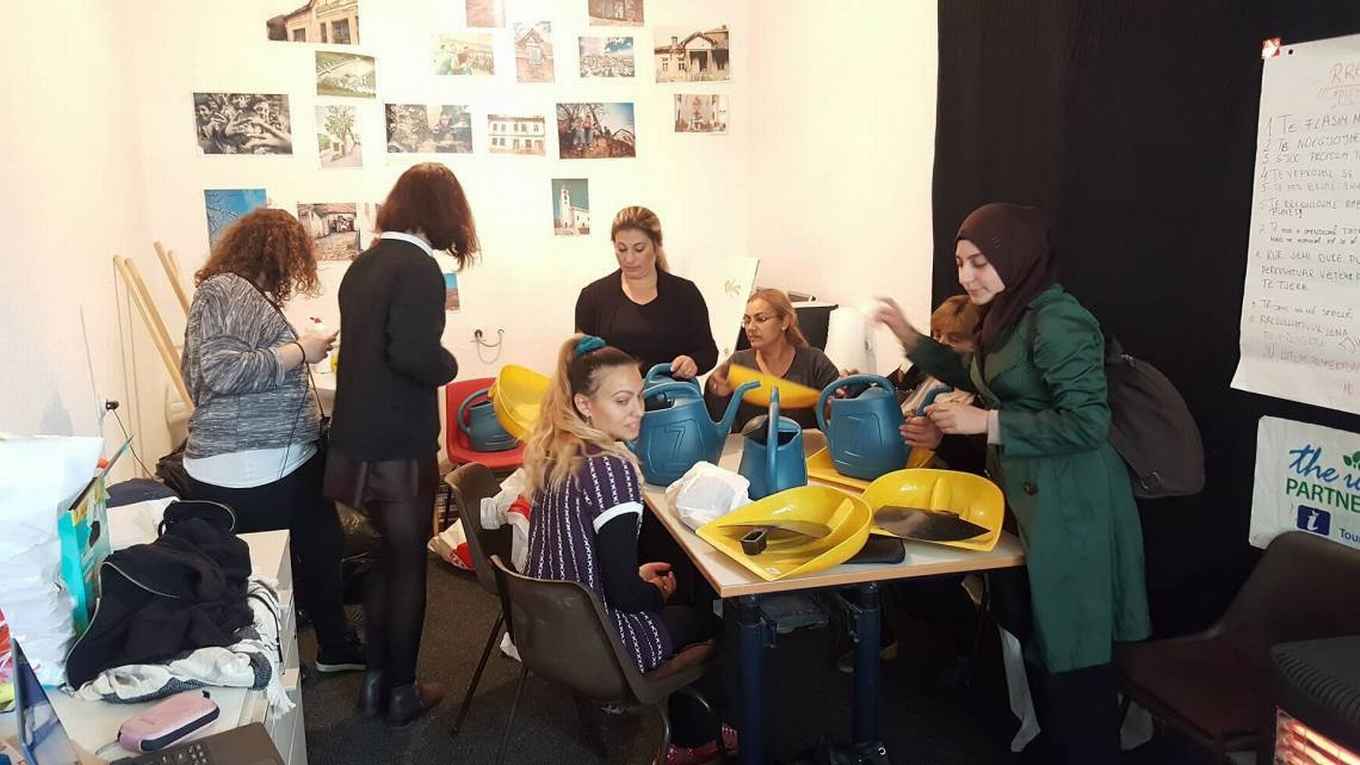
Throughout your stay in Kosovo you have kept a blog in which you detail your experiences. What was your reason for keeping a blog and what was the message you were trying to convey in your posts?
During our field trip to Kosovo in June 2017, our student group kept a blog to process and share our experiences. Although at the time this was a mandatory part of the ‘Peace Lab’ course, I felt that it was a very good way for us, as well as for others, to make sense of everything we encountered and learned. One important aspect of the trip was that we had time to debrief and reflect on our experiences, since we were a group of over twenty people traveling together. This time however, I went through everything alone, and so keeping a blog was my way to both process and share my experiences with others. Furthermore, I have always loved writing, but during my busy time at AUC I did not find much time to follow up on this passion. Therefore, I found this to be a good opportunity to start writing again, and I am seriously considering continuing the blog in one way or another.
With regard to the second part of the question, I don’t think that there is one particular message I aim to convey through the blog posts. Rather, I am trying to formulate my experiences and thoughts as sincerely as possible, and I want to show how many different sides there are to Kosovo and its society. I also want to be clear that I am not trying to ‘teach’ anything through the blog, because I am learning new things and reconsidering my opinions here on an almost daily basis. My intention is to share my journey as a foreign young woman in Pristina with others, and to show the positive as well as negative aspects of my stay in Kosovo. As mentioned above, there is no such thing as one truth about a country or a society, but only an accumulation of its different and sometimes contrasting features.
Do you think Kosovo would be a good location for other AUC graduates/students to take in internship? Why (not)?
Personally, I think Kosovo is an excellent location for AUC graduates to take an internship or do volunteer work. As mentioned before, Kosovar society has many different layers to it, and it is the ideal exemplification of the diverse and global perspectives that are fundamental to AUC. Particularly students of the Social Sciences may find plenty of interesting opportunities here, because Kosovo is still building itself socially, politically, legally and economically. Therefore, there is an abundance of local and international organisations, and the fact that they are highly necessary in Kosovo makes it especially interesting to get to know their work. However, it would be simplistic to say that the young country is merely an interesting work place for social scientists; medical care, environmental issues, scientific development and education, as well as many more areas are equally in need of improvement. Ultimately, all developmental processes in a country are related to each other, and the fact is that Kosovo is still actively working on all of them.
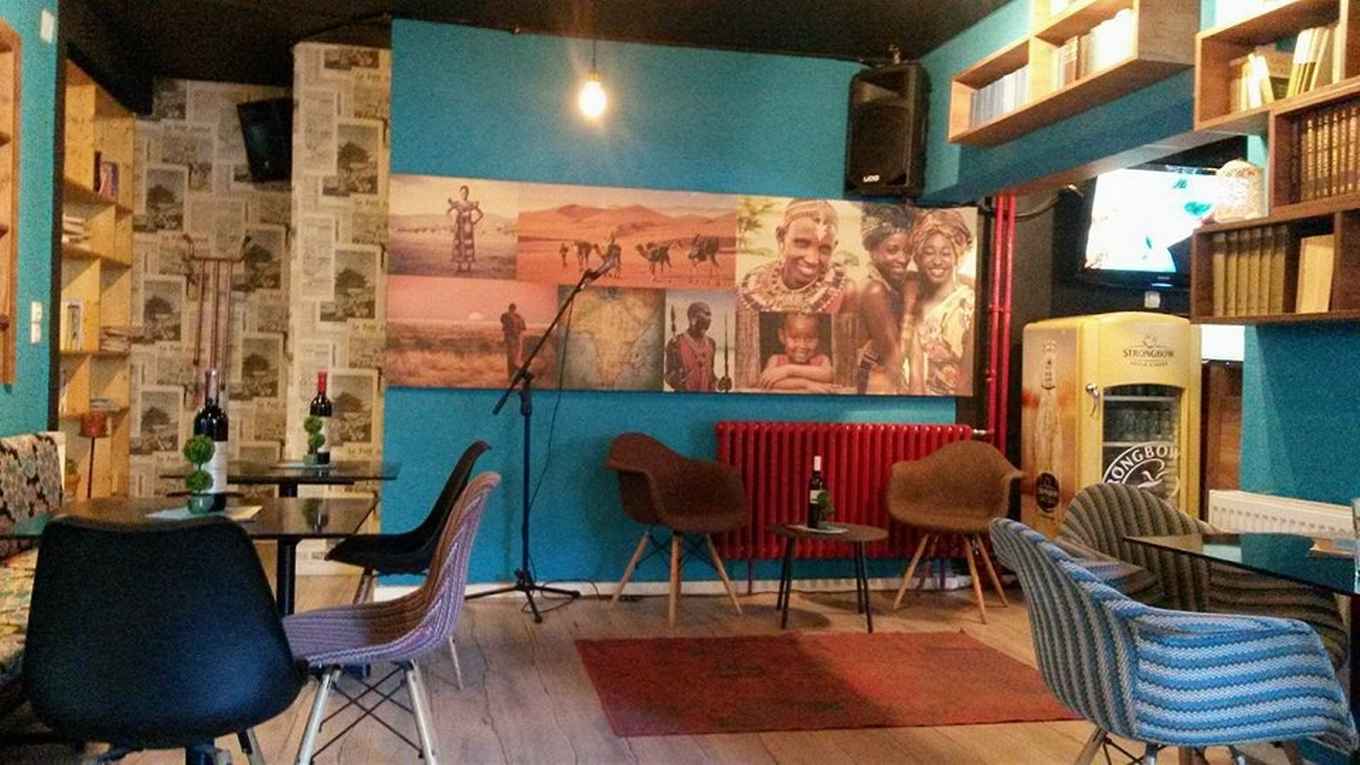
Furthermore, by taking an internship following your graduation rather than starting a Master’s degree right away, you are taking a road less travelled. What would you say to third-year students who are graduating this academic year and are unsure what to do post-AUC?
Follow your heart. When I decided to return to Kosovo, I was already enrolled for a second Bachelor’s programme in law starting in September 2017. However, during summer I decided to postpone this and instead to go with what my gut feeling was telling me. During our trip to Kosovo in June, I swore to myself that I would return to this country - and I certainly did not want this to become an empty, forgotten promise. Of course, by taking this intuitive decision I also took a risk, since I didn’t know what to expect from coming to Pristina alone and for a longer period of time. But in retrospect, this turned out to be one of the most special experiences of my life, and I don’t have a single regret. Although I still aim to continue my studies later on (in fact, as soon as I return to Amsterdam), I strongly believe that this was the right thing for me at this point in my life.
In my opinion, after three intense years at AUC, graduates should be able to take the freedom and time to reflect upon their studies and plans for the future. Furthermore, I think that if recent graduates are still unsure about which Master’s programme to start, it is completely legitimate to take some time off. Travelling, doing an internship, volunteering or working can teach you so much about yourself and about which academic or professional path is the right one. Therefore, doing something completely different, possibly in a different country and with different people is not only fun and exciting, but can also be extremely helpful for students’ futures.
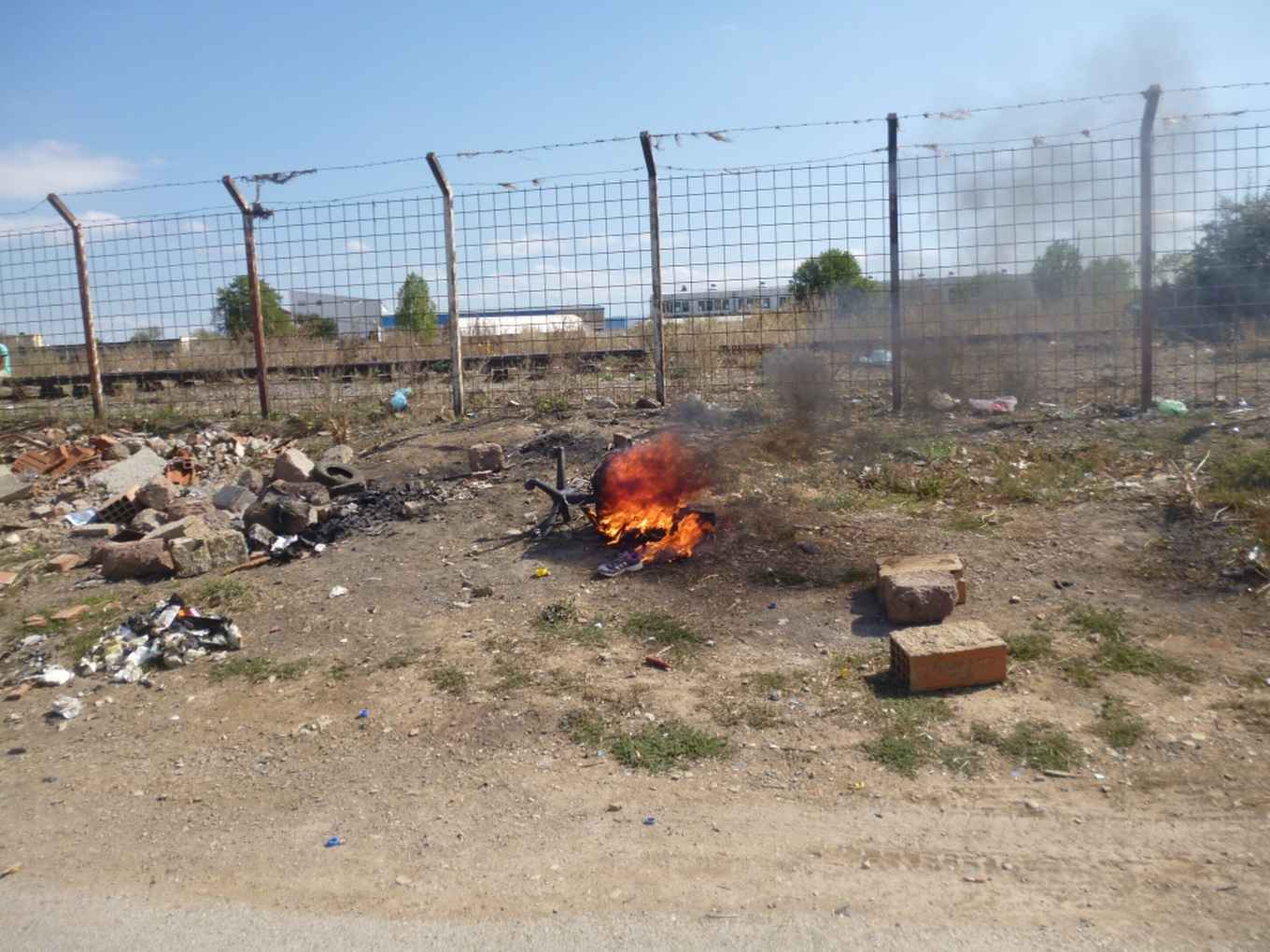
Finally, what is the biggest lesson you have learned during your time at Kosovo and what will you miss the most when you return to Amsterdam?
The biggest lesson I have learned during my time here is probably that one never stops learning. In fact, I recently discussed this with some staff members of The Ideas Partnership in Fushë Kosovë: each day, it feels like I finally understand Kosovo and its society much better than the previous day, only to reconsider my assumptions again the following one. Although Kosovo is a small country, there are so many aspects and layers to its politics, culture and society. While being here for a longer period of time, I have come to realise that it is quite arrogant to assume that countries such as Kosovo can be understood and ‘fixed’ from our privileged, Western perspective. Therefore, the month I spent in Pristina has actually been way too short, and I am sure I will return to learn even more about this very special place. In terms of what I will miss the most, I would say that it is a mixture of the people, the culture and the food. In fact, these things are all interrelated; I will miss all the amazing people I met here, in whose culture it lies to always have time for a small-talk, a cake or a coffee; I will miss the many friends that I made so easily because everyone is so open to meeting new people; I will miss all the unhealthy – but delicious - traditional and non-traditional dishes that can be enjoyed for a small price; and I will miss the busy streets of Pristina with its countless cafés filled with the chatter and laughter of locals and internationals alike.